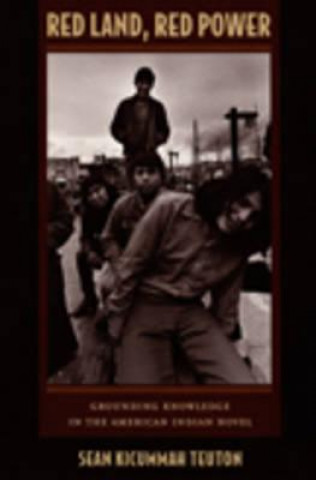
Doručení
Nákupní rádce





Nehodí se? Vůbec nevadí! U nás můžete do 30 dní vrátit
 Dárkový poukaz
V libovolné hodnotě
Dárkový poukaz
V libovolné hodnotě
S dárkovým poukazem nešlápnete vedle. Obdarovaný si za dárkový poukaz může vybrat cokoliv z naší nabídky.
Red Land, Red Power
 Angličtina
Angličtina
 339 b
339 b
30 dní na vrácení zboží
Mohlo by vás také zajímat


In lucid narrative prose, Sean Kicummah Teuton studies the stirring literature of "Red Power," an era of Native American organizing that began in 1969 and expanded into the 1970s. Teuton challenges those who claim that Red Power thinking relied on romantic longings for a pure Indigenous past and culture. He shows instead that the movement engaged historical memory and oral tradition to produce more enabling knowledge of American Indian lives and possibilities. Looking to these historical moments and the literature that grew from them, Teuton develops an alternative "tribal realist" critical perspective to allow for more nuanced analyses of Native writing. In this approach, "knowledge" is not the unattainable product of disinterested observation. Rather it is a revisable, communally mediated product, created in a context that is self-reflexive and openly engaged with the world. Teuton enlarges the concepts of Indigenous identity and tribal experience as mediated and intertwined sources of insight to a shared world. While engaging a wide spectrum of Native American writing, Teuton focuses on three of the most canonized and, he argues, most misread, novels of the era - N. Scott Momaday's House Made of Dawn (1968), James Welch's Winter in the Blood (1974), and Leslie Marmon Silko's Ceremony (1977). Through his readings, he demonstrates the utility of tribal realism as an interpretive framework for explaining social transformation in Indian Country during the Red Power era and today. Such changes, were forged through a process of political awakening that grew from Indians' engagement with tribal lands and oral traditions, the body and imprisonment, in literature and in life.
Informace o knize
 Angličtina
Angličtina
Kategorie




 Jak nakupovat
Jak nakupovat




















